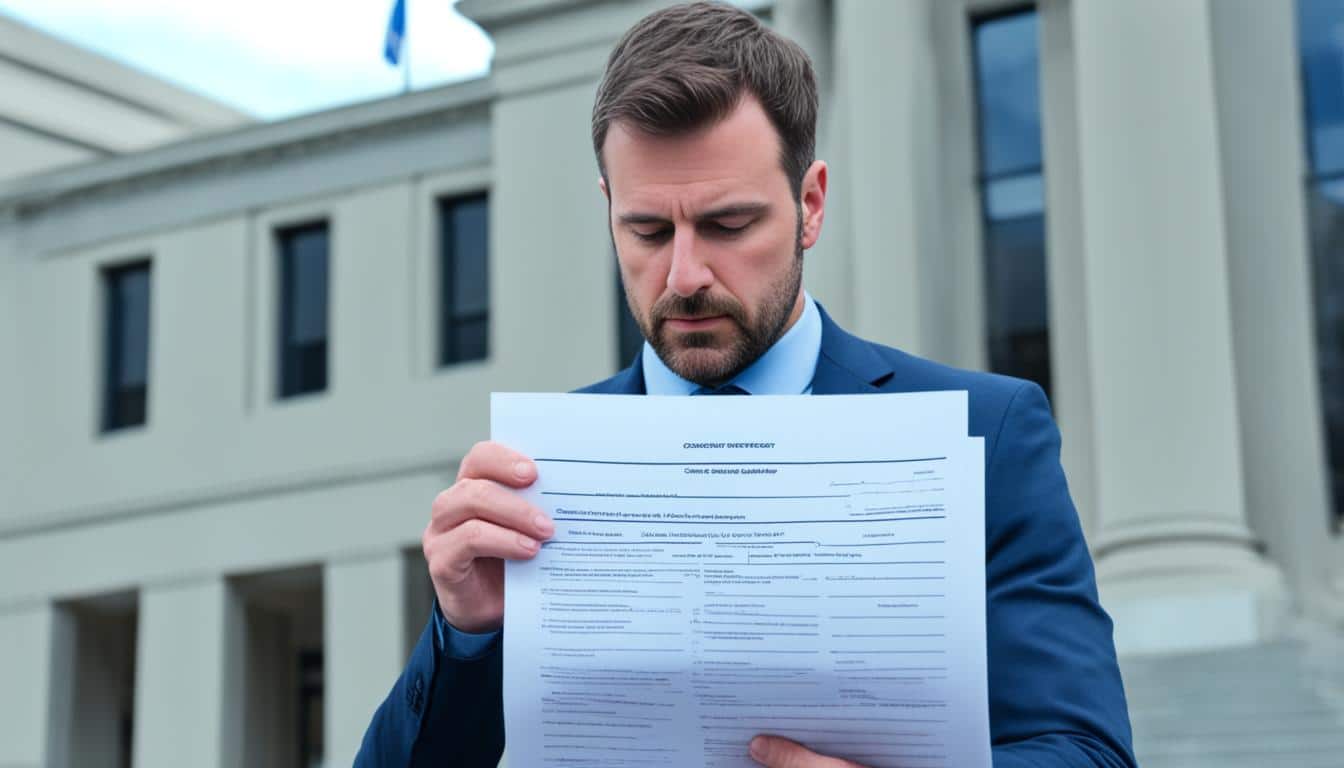Physical Address
304 North Cardinal St.
Dorchester Center, MA 02124
Physical Address
304 North Cardinal St.
Dorchester Center, MA 02124

Filing for divorce in Chittenden County, VT, can feel like navigating through a dense forest of legalities and emotions. It’s not just about filling out forms; it’s about embarking on a significant life transition. You’re at a pivotal moment, where every decision you make will influence your future. In Chittenden County, the divorce process has its unique set of challenges and specific requirements.
To ensure a smoother journey, understanding Chittenden County’s specific divorce laws is crucial. This includes knowing the residency requirements and familiarizing yourself with the intricacies of the Vermont family court system. We’re here to guide you through this process, offering clear, concise advice tailored to Chittenden County. Consider this your roadmap, simplifying what might initially seem like an overwhelming journey.

Ready to take the first step towards a new chapter in Chittenden County? Keep reading as we outline the essential steps, aiming to make your journey smoother and more straightforward. Let’s embark on this path together, moving towards new beginnings and brighter possibilities.
To get more info on filing for divorce in Vermont, find a detailed overview in our article, How to File for Divorce in Vermont.
Before filing for divorce in Chittenden County, Vermont, it’s important to understand the residency requirements. To be eligible to file for divorce in Chittenden County, you must meet the Vermont residency requirements. These requirements ensure that the divorce is filed in the appropriate jurisdiction and that the court has the authority to handle the case.
In Vermont, the residency requirements for filing for divorce are as follows:
This means that if you or your spouse have lived in Chittenden County for at least six months or anywhere in Vermont for at least one year, you meet the residency requirement necessary to file for divorce in Chittenden County.
Meeting the residency requirements is crucial for a smooth and efficient divorce process. It ensures that your case is handled by the appropriate court and that your rights are protected throughout the proceedings.
In Chittenden County, Vermont, divorce can be obtained based on fault-based or no-fault grounds. Understanding the different grounds for divorce is essential before initiating the legal process. Let’s explore the options available to you.
A no-fault divorce allows couples to end their marriage without proving that one party is at fault. In Chittenden County, Vermont, a couple can file for a no-fault divorce on the grounds of “irretrievable breakdown of the marriage.” This means that the marriage is beyond repair, and there is no chance of reconciliation.
To file for a no-fault divorce, both parties must agree to the dissolution of the marriage. It is important to note that a period of separation is not required for a no-fault divorce in Chittenden County, VT.
In certain cases, individuals may seek a fault-based divorce, which requires proving specific grounds for the dissolution of the marriage. Fault-based grounds for divorce in Chittenden County, Vermont, include:
It’s important to gather evidence and consult with a qualified divorce attorney to determine if pursuing a fault-based divorce is appropriate in your situation.

Filing for divorce in Chittenden County, Vermont involves several important steps. Whether you choose to hire an attorney or handle the process yourself, understanding the filing process is crucial. Follow these steps to navigate the divorce filing process successfully:
Remember, filing for divorce in Chittenden County VT can be complex, but understanding the necessary steps and seeking appropriate legal guidance can help ensure a smoother process. Whether you choose to file for divorce with or without an attorney, be prepared, stay organized, and familiarize yourself with the local divorce laws to protect your rights and interests.
Filing for divorce in Chittenden County VT involves certain fees that need to be considered. It’s important to understand the cost of filing for divorce in Vermont and the specific court fees associated with divorce in Chittenden County. By being aware of these fees, you can better prepare yourself financially for the divorce process.
When filing for divorce in Chittenden County, you will need to pay the necessary filing fees to initiate the legal proceedings. These fees can vary depending on the jurisdiction and the complexity of your case.
| Service Type | Fee |
|---|---|
| Divorce | $295.00 |
The divorce filing fee in Chittenden County is typically $250, while the service of process fee, which covers the cost of delivering the divorce papers to your spouse, can range from $50 to $100. It’s important to note that additional fees may apply depending on the specific circumstances of your case.
It’s advisable to consult with your attorney or directly with the Chittenden County Family Court to get the most accurate and up-to-date information regarding the filing fees for divorce in Chittenden County VT.
Understanding the filing fees associated with divorce in Chittenden County VT will help you plan and budget for the costs involved in the divorce process. By having a clear understanding of these fees, you can navigate the divorce proceedings more effectively.
Financial hardship should not prevent individuals from accessing the divorce process. In Vermont, there are fee waiver options available for those who cannot afford the filing fees in Chittenden County. Qualifying for a fee waiver in Vermont is based on demonstrating financial hardship and meeting specific eligibility criteria.
If you are experiencing financial difficulties and are unable to pay the filing fees, you may be eligible for a fee waiver. The fee waiver allows you to file for divorce without the financial burden of the associated costs.
To qualify for a fee waiver in Vermont, you will need to provide documentation and evidence of your financial situation, including proof of income, expenses, and any financial hardships you may be facing. Each case is assessed individually, and the court will consider factors such as income level, dependents, and other relevant financial obligations.
If you qualify for a fee waiver, the court will waive or reduce the filing fees, allowing you to proceed with your divorce proceedings without incurring additional financial strain. It’s important to note that each county in Vermont may have specific guidelines and procedures for obtaining a fee waiver, so it’s recommended to consult with the appropriate court or legal resources for detailed information.
Obtaining a fee waiver can provide much-needed relief for individuals facing financial hardship in divorce. It ensures that everyone has equal access to the legal process and the opportunity to seek a fair resolution. If you believe you qualify for a fee waiver in Vermont, it’s essential to explore this option and take the necessary steps to apply.
To learn more about fee waiver options and the process for obtaining a fee waiver in Chittenden County, Vermont, please see the Chittenden County Family Court website or consult with legal professionals experienced in family law matters.
The court is located at:
175 Main St, Burlington, VT 05401, United States
By contacting the Chittenden County Family Court and utilizing their services, you can access the necessary resources and support throughout the divorce process. Whether you have questions or need guidance, the court staff is there to assist you.

Filing for divorce in Vermont without an attorney is a daunting prospect, but it’s not impossible. Many individuals successfully navigate the divorce process without legal representation. In this section, we will provide you with guidance on how to file for divorce in Chittenden County without an attorney, also known as a pro se divorce.
Self-representation in divorce offers several benefits. Firstly, it can save you significant costs associated with hiring an attorney. Secondly, it allows you to have more control over the process and the outcomes. However, it’s important to note that self-representation comes with challenges, including the need to understand complex legal procedures and the emotional strain of managing your own case.
To navigate divorce without a lawyer, it’s essential to educate yourself about the divorce laws in Vermont and the specific guidelines for Chittenden County. Familiarize yourself with the required forms and documents, such as the Petition for Divorce and Financial Affidavit. There are resources available online that provide step-by-step instructions and templates to help you draft these documents accurately.
Additionally, consider reaching out to local legal aid organizations or family court services in Chittenden County. They may offer free or low-cost clinics where you can receive guidance on the divorce process and get answers to your questions. It’s also valuable to seek emotional support from friends, family, or support groups throughout your self-representation journey.